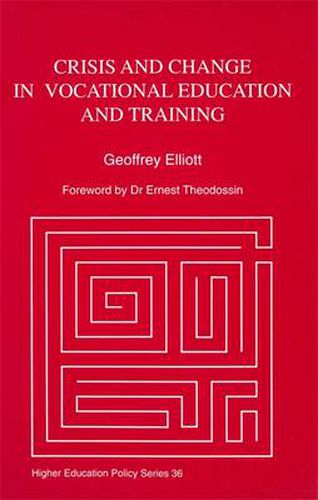Readings Newsletter
Become a Readings Member to make your shopping experience even easier.
Sign in or sign up for free!
You’re not far away from qualifying for FREE standard shipping within Australia
You’ve qualified for FREE standard shipping within Australia
The cart is loading…






Geoffrey Elliott provides a critical account of the nature, extent and impact of government policy for the further education sector. The range of responses to policy is explored, exposing both intended and unintended consequences of the increase development of human resource management and quality assurance systems, and setting these in the context of competing lecturer and manager perspectives. The theoretical focus is grounded on a study of a large urban FE college coming to terms with increasing pressures from market forces in vocational education. The book examines the conceptual underpinning of a new culture of managerialism in FE, coupled with a resistant student-centred culture maintained by the lectures in the study. While lectures are willing to adapt their practices to accommodate new demands (including the need to meet externally driven performance indicators and quality targets), college managers fail to recognise this critically significant commonality between their own orientation and that of lectures. The author argues that this failure is a major in inhibiting effective institutional development.
$9.00 standard shipping within Australia
FREE standard shipping within Australia for orders over $100.00
Express & International shipping calculated at checkout
Geoffrey Elliott provides a critical account of the nature, extent and impact of government policy for the further education sector. The range of responses to policy is explored, exposing both intended and unintended consequences of the increase development of human resource management and quality assurance systems, and setting these in the context of competing lecturer and manager perspectives. The theoretical focus is grounded on a study of a large urban FE college coming to terms with increasing pressures from market forces in vocational education. The book examines the conceptual underpinning of a new culture of managerialism in FE, coupled with a resistant student-centred culture maintained by the lectures in the study. While lectures are willing to adapt their practices to accommodate new demands (including the need to meet externally driven performance indicators and quality targets), college managers fail to recognise this critically significant commonality between their own orientation and that of lectures. The author argues that this failure is a major in inhibiting effective institutional development.